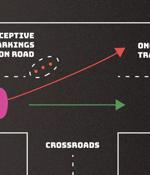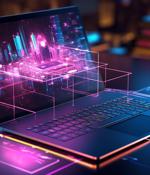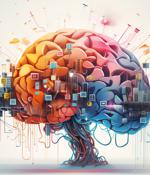Security News

The failure of LLMs to live up to their hype will be the story of 2024, as generic models become relegated to consumer-centric applications and enterprise users turn to smaller, more targeted AI models, purpose-built to meet their business needs. Recognizing the value of the data they hold, companies will seek to secure it by taking a "Hybrid cloud by design" approach, rather than "Hybrid cloud by default." Ultimately, data protection will emerge as a key pillar in a successful AI strategy, and companies will move towards prioritizing AI solutions that are trustworthy and responsible.

The publication, "Adversarial Machine Learning: A Taxonomy and Terminology of Attacks and Mitigations," is a key component of NIST's broader initiative to foster the creation of reliable AI. This effort aims to facilitate the implementation of NIST's AI Risk Management Framework and aims to assist AI developers and users in understanding potential attacks and strategies to counter them, acknowledging that there is no silver bullet. "The risks of AI are as significant as the potential benefits. The latest publication from NIST is a great start to explore and categorize attacks against AI systems. It defines a formal taxonomy and provides a good set of attack classes. It does miss a few areas, such as misuse of the tools to cause harm, abuse of inherited trust by people believing AI is an authority, and the ability to de-identify people and derive sensitive data through aggregated analysis," Matthew Rosenquist, CISO at Eclipz.io commented.

The U.S. National Institute of Standards and Technology (NIST) is calling attention to the privacy and security challenges that arise as a result of increased deployment of artificial intelligence...

Intel and the global investment firm DigitalBridge Group have formed an independent generative AI software stack company, Articul8 AI, Inc.; Intel announced the new company on Jan. 3. Articul8 will work with Intel and provide solutions for organizations that wish to build and deploy generative AI. Articul8's product and capabilities.

The U.S. Federal Trade Commission has started accepting submissions for its Voice Cloning Challenge, a public competition with a $25,000 top prize for ideas that protect consumers from the danger of AI-enabled voice cloning for fraudulent activity. AI can be used to clone someone's voice by analyzing an audio clip of the target speaking to extract unique vocal characteristics and then using the training data to generate new speech.

In this Help Net Security video, Greg Ellis, General Manager, Application Security, at Digital.ai, discusses how artificial intelligence is revolutionizing the way applications are developed and...

To test PIGEON's performance, I gave it five personal photos from a trip I took across America years ago, none of which have been published online. Some photos were snapped in cities, but a few were taken in places nowhere near roads or other easily recognizable landmarks.

The worldwide revenue for AI software will reach $307 billion in 2027, according to IDC. The forecast for AI-centric software includes Artificial Intelligence Platforms, AI Applications, AI System Infrastructure Software, and AI Application Development and Deployment software. A recent IDC survey found that, in the next 12 months, roughly a third of respondents believe that organizations will prefer to buy AI software from a vendor or use in-house support alongside vendor-supplied AI software for specific use cases or application areas.

AI researcher Tantum Collins and I, a public-interest technology scholar, call this AI overcoming "Lossy bottlenecks." Lossy is a term from information theory that refers to imperfect communications channels-that is, channels that lose information. By storing rich representations of people's preferences and histories on the demand side, along with equally rich representations of capabilities, costs and creative possibilities on the supply side, AI systems enable complex customization at scale and low cost.

The immense amount of time IT leaders are spending on IT support is even more shocking given that 46% of respondents say that they are already in an advanced state of AI adoption with AI already prevalent throughout their organization. While security is a priority for IT leaders at large, just how important it is differs significantly across IT leadership.